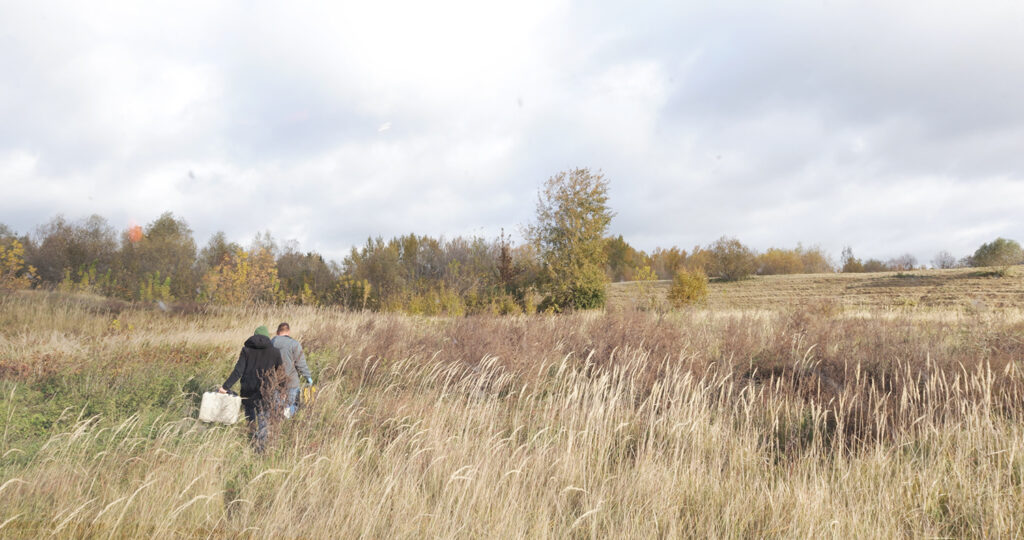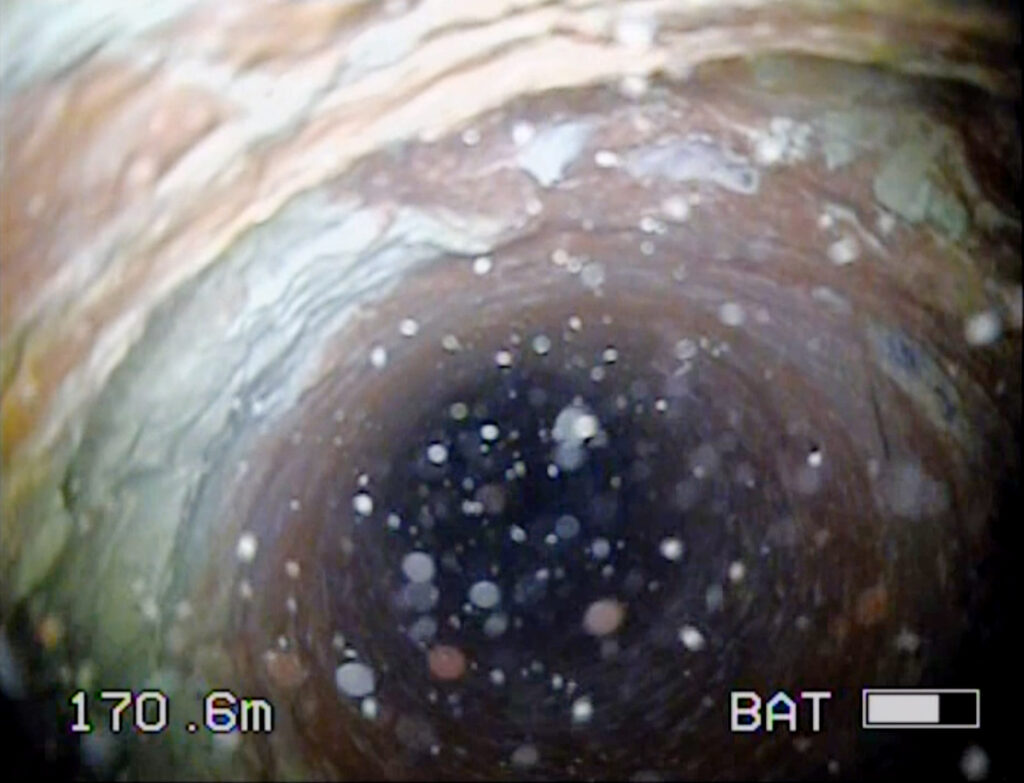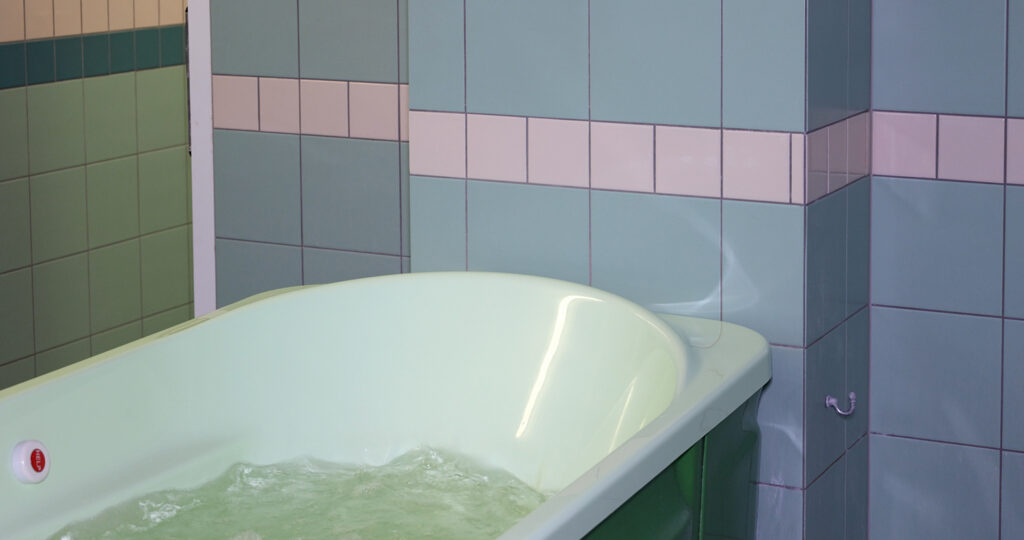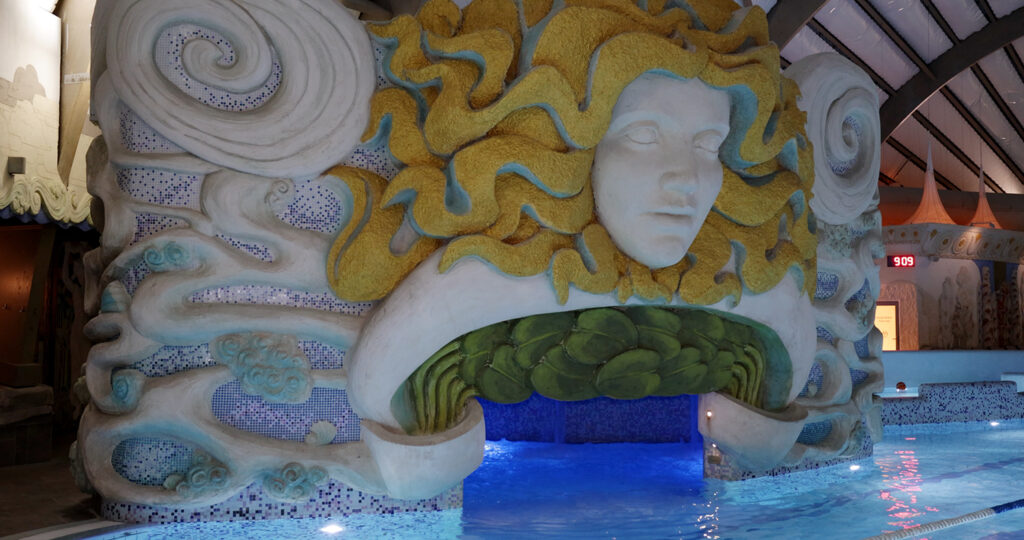Alina Schmuch, Underpasses
Video installation, 22’57”
2025

The story of migration and development is, at its core, a search for water. Without question, both the future of humanity and the planet — politically, ecologically, ethically, and socially — will follow that script precisely. For the majority of recorded memory, water was an unfathomable danger, a tumultuous ocean, a carrier of disease, and an overwhelming meteorological force. Now, at least in the Global North, many regard it as decorative, recreational, and automatic — or more likely, not given a second thought.
Underpasses is the first episode of Alina Schmuch’s commission for Alterlife, a residency and research collaboration between Rupert and Sonic Acts in Amsterdam. While the concept of the project was never explicitly about water, the hydrometric commonalities between Lithuania and the Netherlands revealed themselves very quickly.
From the first moment we began discussing her research plan late last summer, Alina conveyed an enthusiastic interest in hygienic architectures, especially how they materialise local relationships between water as a resource, a core element of health, and a luxury item. The investigation in Vilnius and Amsterdam continues Schmuch’s curiosity about the pursuit of cleanliness and water management. Her recent Bathroom Studies film series emphasized the direct relationship between home sanitation appliance design (i.e., bathtubs), and monumental sanitation structures — giant civic sewer systems with teams of maintenance robots.
Remembering water’s mystical associations is also relevant. For eons, natural springs have seduced all classes of people, believing these sources and the minerals contained within them possess healing or medicinal properties. Nevertheless, its intangibility, the pursuit that mimics deep space exploration, clearly invokes fantastical ideas. In the film’s central interview with a hydrogeologist, she comments: ‘We have very young water and very old water. That very old water is deep underground — hidden somewhere in the Baltic artesian basin.’ Aquifers remain somewhat magical, otherworldly, just outside the reach of our comprehension.

Schmuch examines all these matters analytically, juxtaposing the act of extracting groundwater, scientific conversations, and the ways water is used and celebrated — for wellness, cleaning, and infrastructure.
The central question posed by Schmuch’s film subverts much of the present climate discourse. Conventional wisdom declares that global freshwater resources are rapidly dwindling. According to the researchers interviewed in the film, current scientific models actually project Lithuania to have a water surplus in the coming decades. Putting aside the accuracy of the prediction, it generates a crucial ethical question. If there is excess, what should nations do with it? Hold it in reserve? Commodify it? Share it freely?
Schmuch recognises the paradox of societies that build their identity around water, against the methods they choose for water’s use. As pointed out by her film, the presence of drought and surplus are not opposites but simultaneous. Because water resources are controlled, one condition requires the other to be true.

Nationalism certainly obstructs egalitarian natural resource management. Especially now, political power structures see this as a feature, rather than a bug. Holding trust that mere exposure to impartial facts will prompt more logical human behavior is an antiquated concept.1 Do we have any capacity to adapt for the collective good, rather than a relative, compartmental one? Cultural theorist Astrida Neimanis recognises this fundamental clash, stating: “[with] bodies of water, ‘we’ are all in this together, but ‘we’ are not all the same, nor are we all ‘in this’ in the same way”.2
While the setting will differ, Schmuch’s examination of these contradictions in water management will continue for the film’s second episode at the Sonic Acts Biennial in early 2026.
When we look at the Neris river, backgrounding Schmuch’s film, we see the flow of life and time. It is beautiful and alive. It’s also a disguise. As Underpasses illustrates, just as with human bodies, the most consequential questions and existential struggles lie well beneath the surface.
— JL Murtaugh
with curatorial assistance by Alicia Grobholz
thanks to Viktorija Šiaulytė and Monika Lipšic (Rupert), Mirna Belina and Angeliki Tzortzakaki (Sonic Acts)
____
Alina Schmuch’s ‘Underpasses’ was commissioned by Sonic Acts and Rupert for the joint research and production residency Alterlife.
Both the Alterlife residency and Mass Moving event are part of New Perspectives for Action, a project by Re-Imagine Europe, co-funded by the European Union and Lithuanian Culture Institute. Rupert programmes are also supported by TechZity.
Funded by the European Union. Views and opinions expressed are however those of the author(s) only and do not necessarily reflect those of the European Union or the European Education and Culture Executive Agency (EACEA). Neither the European Union nor EACEA can be held responsible for them.

- In the preface to the novel Breakfast of Champions, Kurt Vonnegut—using the pseudonym Philboyd Studge—reflects on a former employer, born in a pre-world-war generation, and their aptitude for being gracefully impolite. That person firmly believed that candidness, in concert with increased prosperity, would inherently lead to rationality, justice, and happiness. It’s fiction, but I find it particularly informative for the cognitive dissonance and misplaced hopes early- and mid-20th-century generations placed in science and ecology. ↩︎
- Astrida Neimanis, Bodies of Water: Posthuman Feminist Phenomenology, 2017. As cited in Rehearsing Hospitalities – Companion 2, edited by Yvonne Billimore and Jussi Koitela. Archive Books, Berlin and Frame, Helskini, 2020. ↩︎
